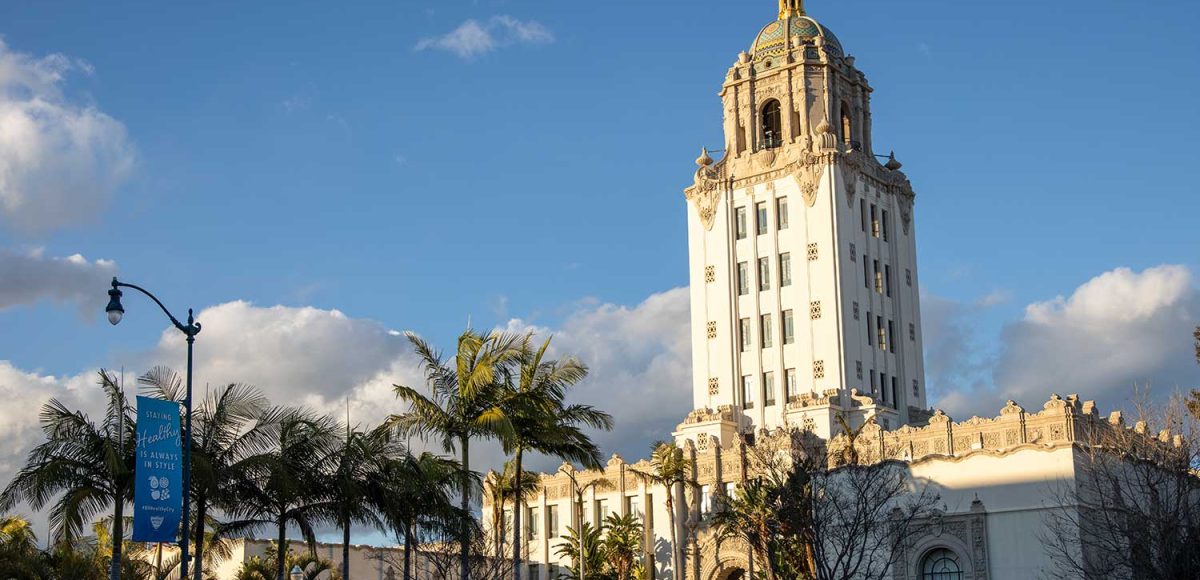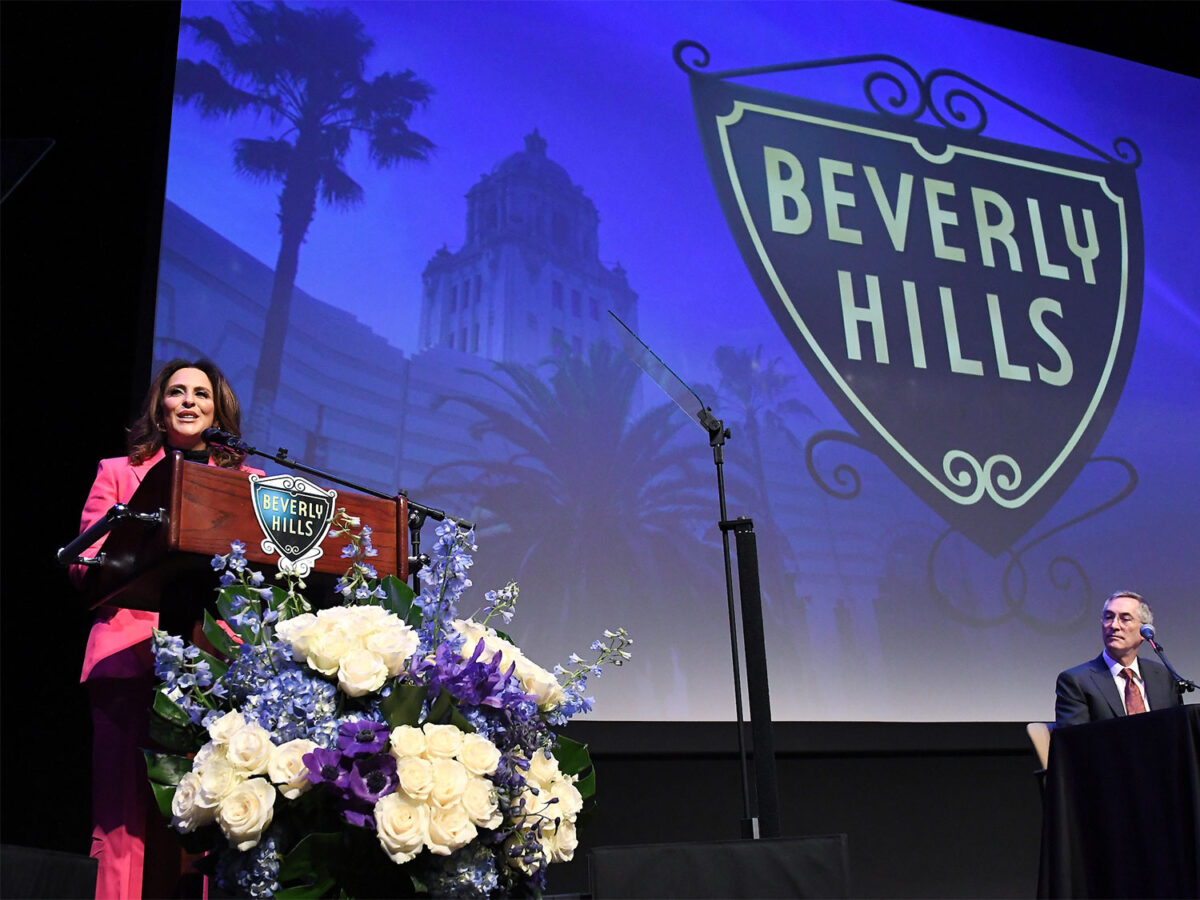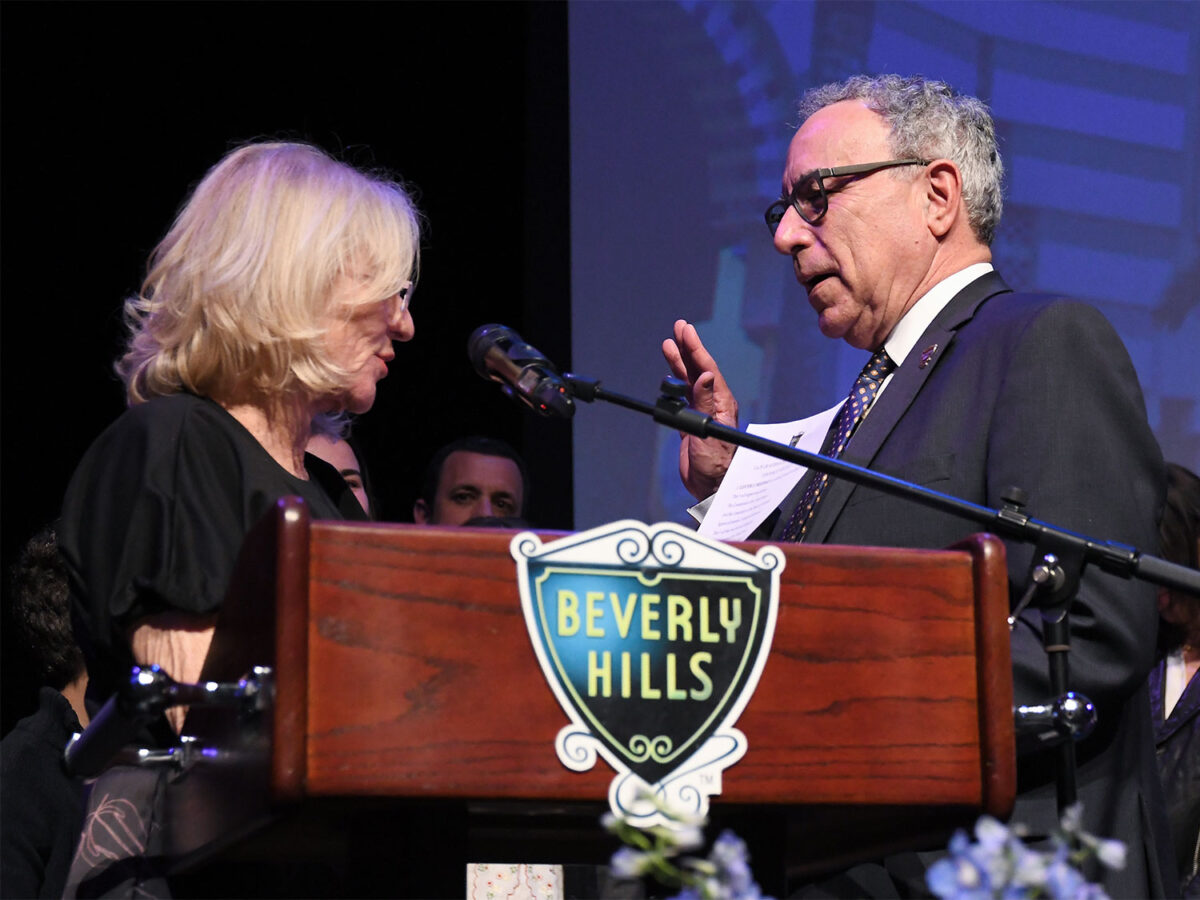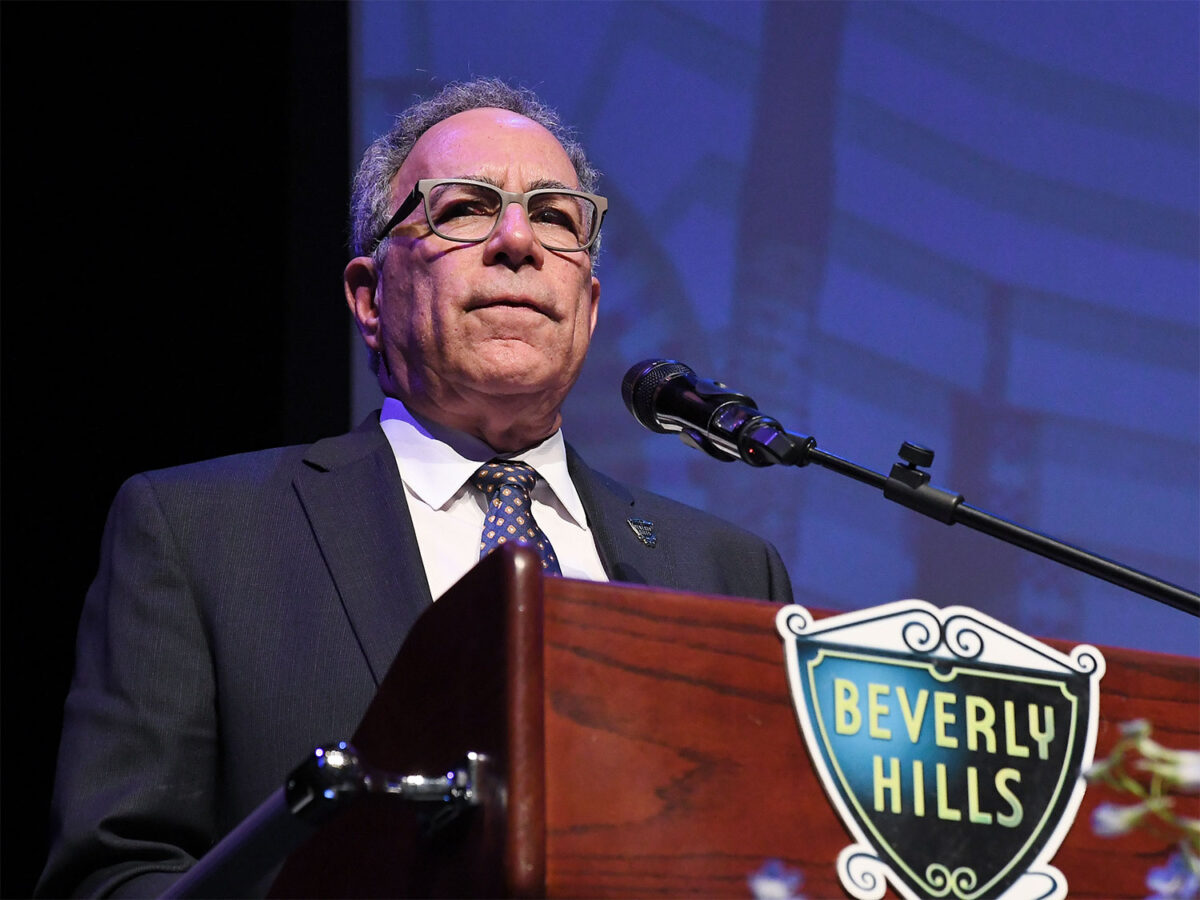Council members finalized a renewed Joint Powers Agreement with the Beverly Hills Unified School District (BHUSD), proposed a name for the planned Metro station on Wilshire Boulevard, and amended a pilot program to allow the installation of the first fully automated parking lift in the city.
The latest iteration of the city’s arrangement with the school district was unanimously approved as part of the consent calendar on the agenda of the council meeting on Oct. 3. It covers the use and maintenance of BHUSD’s facilities retroactively from July 1, 2023, through June 30, 2026.
The projected budget for the first year of the agreement is $13.4 million, growing to $13.8 million the following year and then $14.2 million in its third year. The deal also authorizes the purchase and maintenance of security cameras on campus at a cost of nearly $2 million.
The approved consent calendar also included an item to increase spending on after school programs. Council members agreed to massively increase funding for the use of Star Sports Theatre Arts and Recreation’s facility in Culver City, increasing the amount of money set aside for that expense up from the $100,000 allocated in the current fiscal year to up to $500,000 for the upcoming year.
The consent calendar also included the formal adoption of interim rules defining whether property owners who wish to split single-family lots into two separate housing units may qualify for exemptions to certain zoning restrictions. The provision puts Beverly Hills’ municipal code in compliance with the California HOME Act, also known as SB9.
The council also took up the matter of a name for the planned Metro Purple Line Section 2 Station on Wilshire Boulevard. Riders will access the station from escalators between Canon Drive and Reeves Drive. However, a survey of 200 regular metro riders and 200 nonriders found that naming the facility the Wilshire/Beverly Station would make it easier to recognize for people trying to navigate the transit system, Metro Community Relations Officer Mindy Lake said during the meeting.
“I think the neighborhood identity really is Wilshire Beverly Drive,” Vice Mayor Lester Friedman said.
Representatives for the Beverly Wilshire Hotel attended the meeting to oppose naming the station after that intersection. They fear doing so might cause travelers to associate their business with the transit station. That could negatively impact the company’s reputation, particularly if a notable crime at the Purple Line stop made its way to headlines, Beverly Wilshire Director of Public Relations Kiersten Dunn and the hotel’s Director of Sales Chris Gleeson said.
Councilmember Sharona Nazarian was especially vocal in recognizing the hotel’s concerns. She pointed out that the station’s entrance would be closer to Canon Drive and recommended using that street in the facility’s name.
Meanwhile, Councilmember John Mirisch pointed out that people trying to get through the city may confuse Beverly Drive with Beverly Boulevard. He said he preferred naming the station after Canon Drive for clarity’s sake.
Mayor Dr. Julian Gold suggested dropping Wilshire Boulevard from the name and calling the stop the Beverly Drive station. That would make it easy to place, geographically, for riders while distancing it from the hotel.
Councilmember Lili Bosse and Vice Mayor Friedman found that to be an adequate compromise, allowing a motion to pass 3-2. The city council’s suggested name of “Beverly Drive Station” will be heard at an upcoming meeting of Metro’s board of directors on Oct. 26.
Officials also amended a pilot program to allow the installation of the first fully automated parking garages in Beverly Hills, despite concerns over traffic and safety voiced by several residents during the regular meeting of the City Council on Oct. 3.
The first such facility would be part of a three-story commercial building at 8633 Wilshire Blvd. Current plans would allow the structure to accommodate as many as 76 vehicles.
Numerous residents told council members they were worried about how that might affect traffic.
Community member Isabel Hacker presented a letter critical of the project signed by “every resident on my street.” Aside from the potential for traffic jams, they also expressed concern over what they characterized as a relatively unproven startup, Volley Automation, behind the design of the automated parking system.
Others noted that the project’s developer, Skanska, does not intend to own it permanently.
“They’re planning to sell the building once the tenants are in place,” one resident said during public comment. “So, in the long run, if the system fails it will be absolutely the neighborhood’s problem.”
Volley currently has one fully automated parking garage up and running in San Francisco. So far it has not experienced any significant shutdowns or issues, the company’s CEO, Ryan McKillen, said during the meeting. A human attendant will still be present during business hours and numerous redundancies like a backup generator or extra robots are built into the system, McKillen said.
Studies conducted by Skanska show there should be enough space inside the garage so that cars waiting for a spot don’t wind up lining up on Wilshire Boulevard or Carson Road. Those findings were reviewed and supported by the city’s engineers, Beverly Hills City Planner Masa Alkire said.
However, residents like Hacker were skeptical. They called for an independent traffic study to be conducted.
“For me, the issue is that this is a little bit untested,” Councilmember Mirisch said. “I don’t want to tell the residents what’s best for them. I think we’ve heard from them and their concerns… It just seems like all the residents, the whole block, has an issue with it.”
Gold, Friedman, Bosse and Nazarian followed the recommendations of planning staff and voted to allow the construction of fully automated garages in Beverly Hills, outnumbering Mirisch 4-1.
Council members also discussed proposed rules outlining how medical marijuana delivery companies may set up shop in the city during public hearings. Those types of businesses had been banned in Beverly Hills, as previously reported by the Courier. But the passage of the Medicinal Cannabis Patients’ Right of Access Act in Sacramento last year now prohibits cities from outlawing them.
The council moved forward with the new rules, tentatively voting 5-0 to approve them. They are scheduled to revisit the matter for a second reading and final consideration during their next formal meeting.







